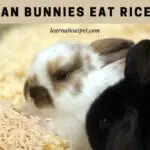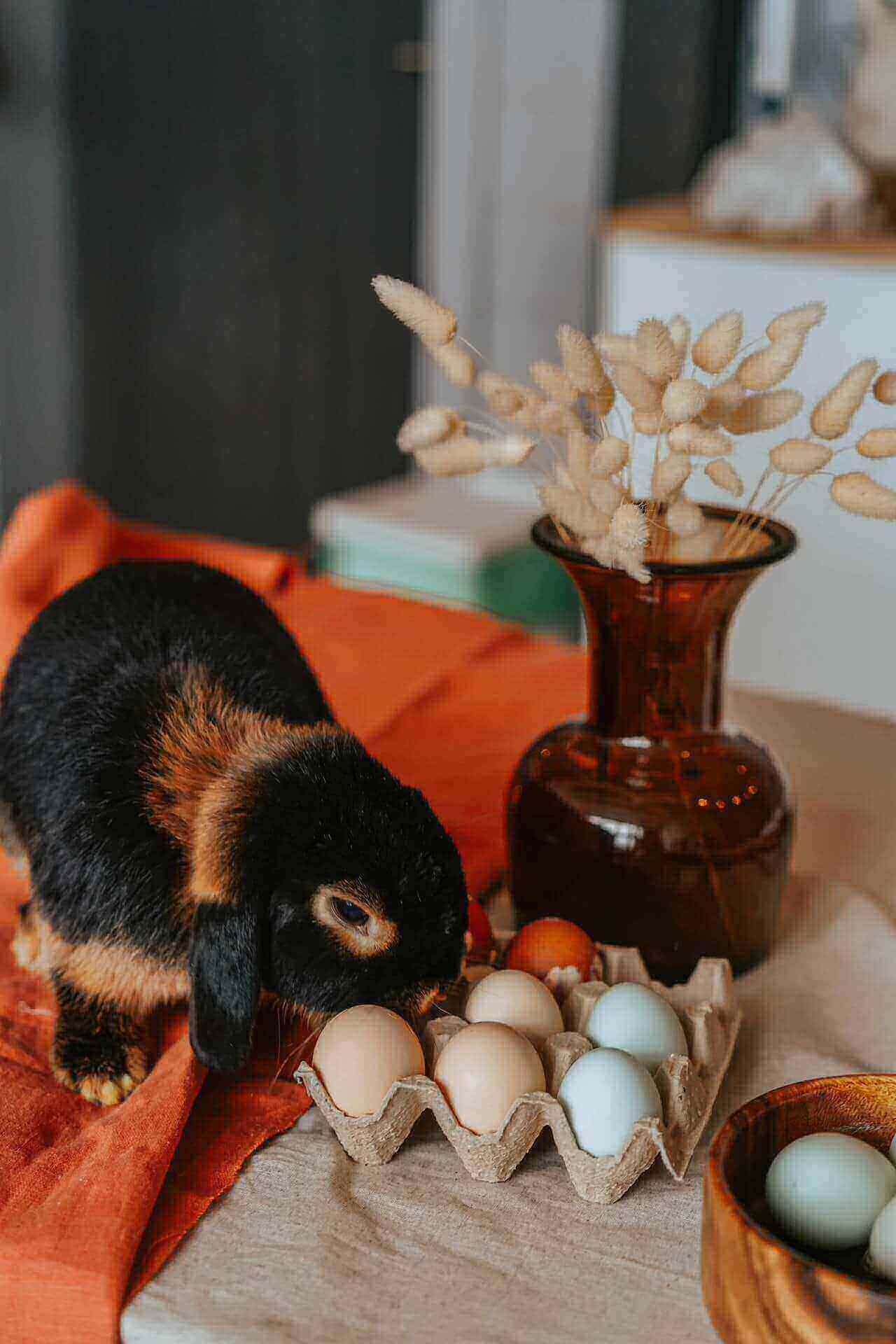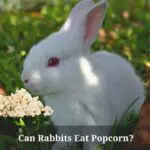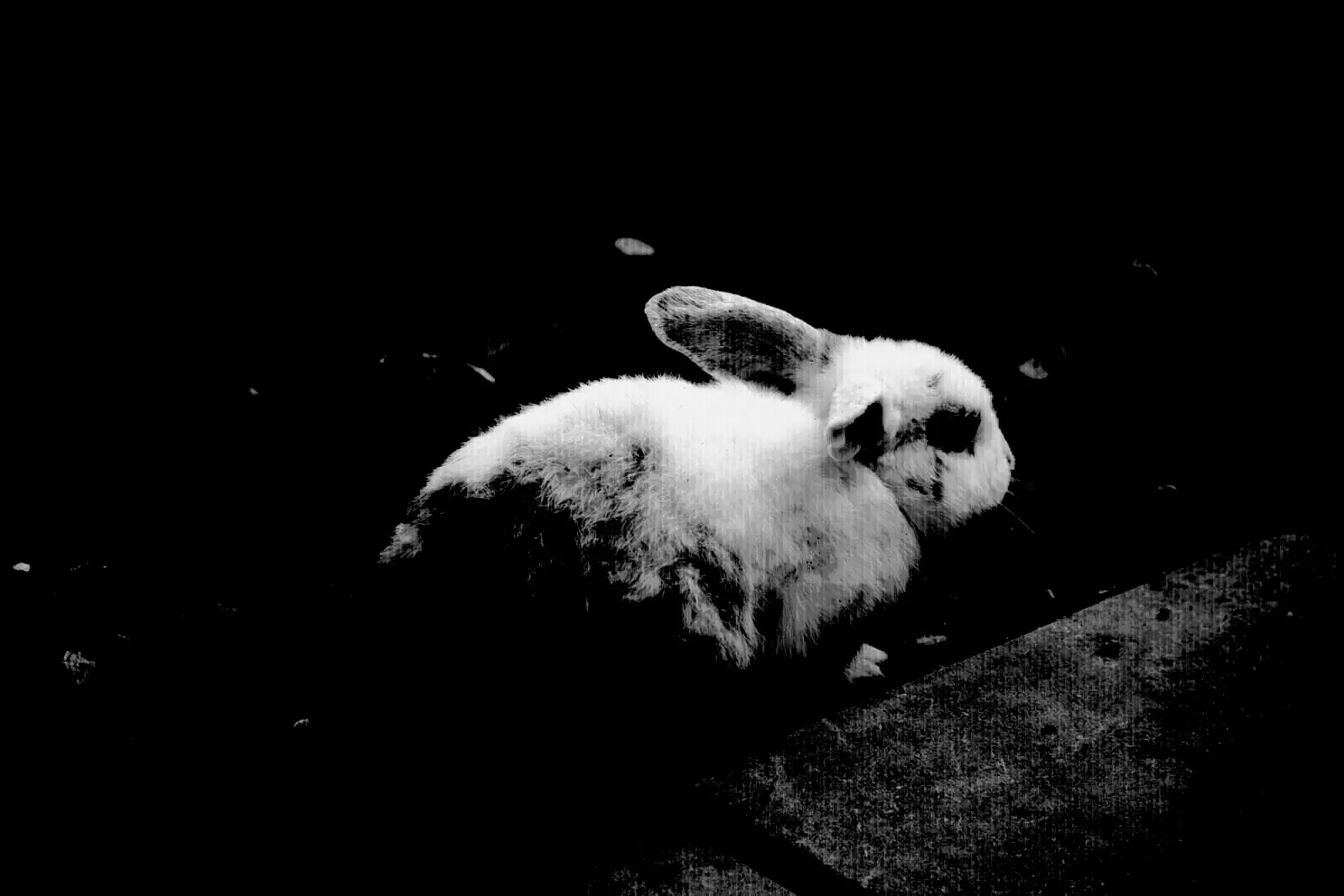If you own a pet ferret, there are times when you may consider feeding it on rice. But before actually giving the ferret rice to eat, you will naturally first want to know whether it is alright for ferrets to eat rice.
Can ferrets eat rice? No, ferrets shouldn’t eat rice. The ferrets’ rather short and sensitive digestive systems are ill-equipped to handle foods like rice. And the amount of starch/carbohydrate in rice is too much for a ferret.
Therefore it is best to avoid serving your pet ferret rice.

Is Rice Safe For Ferrets?
No, rice is not safe for ferrets.
Ferrets that feed on rice are at risk of developing stomach upsets in the short run. In the long run, they may have digestive problems, obesity, diabetes and lots of other complications.
Therefore rice cannot be termed as a safe food for ferrets to eat.
Is Rice Beneficial To Ferrets?
No, rice is not really beneficial to ferrets.
It is an unnatural food for them. Their digestive systems are too short to handle it properly. And the main nutrient in it, namely carbohydrate/starch, is not something that ferrets need in huge quantities.
Therefore we can’t term rice as a beneficial food for ferrets.
Can Ferrets Eat Rice?
As we have seen, rice is not safe for ferrets. Neither is it particularly beneficial to them. Given those facts, it follows that ferrets shouldn’t eat rice.
In most cases, when ferrets are presented with rice to eat, they will tend to spurn it. That is unless it has meat (or meat derivatives).
Therefore we see that ferrets don’t usually like eating rice. And the rice is also not good for them. Therefore they shouldn’t eat it.
There is really no amount of rice that can be said to be alright for ferrets to eat. Thus if you were wondering, how much rice is too much for Ferrets, then the true position is that any amount of rice would be improper for ferrets.
And as for feeding frequency, none would be alright for ferrets too. Thus even if the question was, can a ferret eat rice once in a while, the answer would still be no.
And if one was keen on knowing, can ferrets eat rice daily, then the answer is of course ‘no’.
Rice is simply not alright for ferrets under any circumstances.
Can Ferrets Play In Rice?
So far, we have been making reference to ferrets and rice in the feeding context. But what of the playing context: whereby people often procure rice boxes for ferrets to play in? Is that alright?
We need to start by asking ourselves, is rice safe for ferrets to play in? And the answer in this case is ‘yes’.
We may then go further and ask, do ferrets like to play in rice? And the answer is still ‘yes’.
Given those facts then, we come to the conclusion that procuring a rice box for your ferret to play in would be alright.
Can Adult Ferrets Eat Rice?
Adult ferrets shouldn’t eat rice. Eating rice can cause adult ferrets both short-term and long-term problems.
In the short run, it can leave them with stomach upsets. And in the long run, it can leave them with digestive problems, obesity, diabetes and even premature death.

Can Baby Ferrets Eat Rice?
Rice is not an appropriate food for baby ferrets.
The short and sensitive digestive systems that baby ferrets have can’t handle rice. Therefore it is a very bad idea to feed a baby ferret on rice.
Is There Any Type Of Rice That Is Alright For Ferrets?
Rice comes in many varieties – ranging from brown rice to white rice and with byproducts such as rice cakes.
The question we need to tackle now is on if any of these types of rice can be suitable for ferrets.
Can Ferrets Eat Brown Rice?
No, ferrets shouldn’t eat brown rice.
It can be extremely hard for ferrets to digest brown rice since their short digestive systems are designed for other types of foods.
Therefore ferrets shouldn’t eat brown rice.
Can Ferrets Eat White Rice?
No, white rice is not appropriate food for ferrets at all.
The amount of starch/carbohydrate in white rice is way too high for a ferret. In any event, the ferrets’ bodies are unable to properly digest the white rice.
Can Ferrets Eat Rice Cakes?
No, rice cakes are not proper food for ferrets.
Ferrets that eat rice cakes may, in the short run, suffer from stomach upsets. And in the long run, such ferrets may suffer from complications like obesity and diabetes.
Therefore giving ferrets rice cakes is not a good idea at all.
Why Is Rice Bad For Ferrets?
There are at least 3 reasons as to why rice is bad for ferrets.
Firstly, the ferrets’ digestive system can’t really break rice down properly, as they are rather short and better-suited for other types of food.
Secondly, even if the ferrets were able to properly digest rice, the amount of starch/carbohydrate in it is too much for them.
Thirdly and in more practical terms, eating rice can make ferrets sick. It can, in the short run, leave them with stomach upsets. And in the long run, eating rice can cause ferrets digestive problems, obesity, diabetes and possibly premature death.
It is on account of these factors that rice is bad for ferrets.
Final Verdict – Can Ferrets Eat Rice
Can ferrets eat rice? Ferrets shouldn’t eat rice. Ferrets’ digestive systems are short and sensitive. As such, they are ill-equipped to handle foods like rice. Moreover, the amount of carbohydrate/starch in rice is way too much for a ferret’s body.
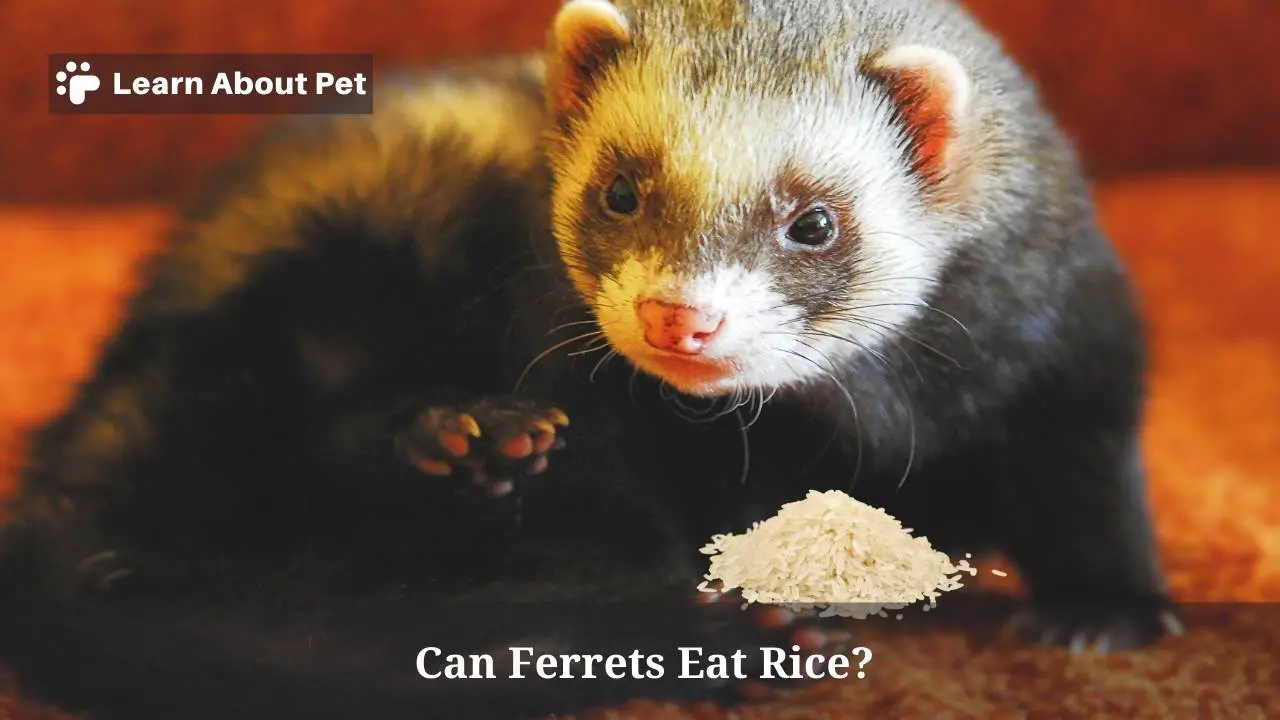
Eating rice can make ferrets ill. It can cause them stomach upsets in the short run. In the long run, it can cause them digestive system damage, obesity, diabetes and possibly premature death.
Therefore it is not a good idea to feed ferrets on rice at all.
As a pet lover, make sure to learn about pet more and give your pet ferrets a good and comfortable life!

Welcome to Learn About Pet. My name is Rajkumar Ravichandran and I love all pets, travel, and amazing food. I write about my passion and personal experience caring for multiple pets in this blog! ❤️
Post Disclaimer
DISCLAIMER: THIS BLOG OR WEBSITE, "Learn About Pet", DOES NOT PROVIDE YOU WITH MEDICAL ADVICE AND IS NOT A SUBSTITUTE FOR MEDICAL ADVICE. ALWAYS GET IN TOUCH WITH YOUR PERSONAL VETERINARIAN AND USE INFORMATION HERE AS GENERAL ADVICE.
The information, including but not limited to, text, graphics, images and other material contained on this website are for informational purposes only. No material on this site is intended to be a substitute for professional veterinary advice, food recommendation, diagnosis, or treatment. Always seek the advice of your veterinarian or other qualified health care provider with any questions you may have regarding a medical condition or for pet food related questions.
